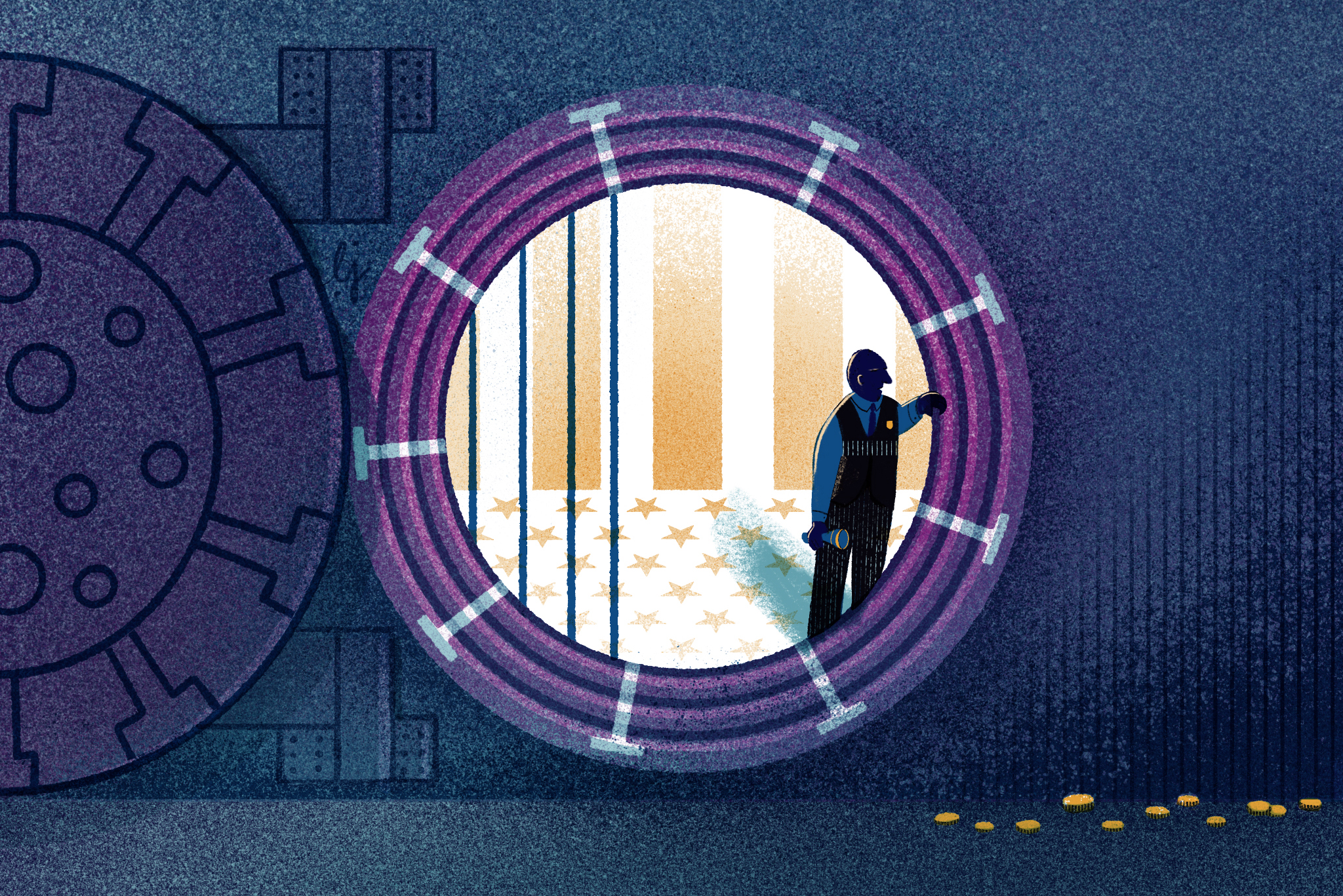The report, released by the Labor Department’s inspector general, paints a grim picture of the country’s jobless aid program starting in 2020 under the Trump administration. In the first five months of the crisis alone, the weekly benefits helped more than 57 million families—yet, the program quickly became a tempting target for criminals.
To drain the funds, scammers allegedly filed billions of dollars in unemployment claims in multiple states at the same time and relied on suspicious, hard-to-trace emails. In some cases, they used more than 205,000 Social Security numbers belonging to the deceased. Other suspects exploited the status of inmates who were not eligible for assistance.
The Office of the Inspector General said it has opened about 190,000 investigations related to unemployment insurance fraud since the pandemic began. But officials in the oversight office warned that they were unable to obtain more updated federal prisoner data, focusing only on “high-risk” areas — two factors that raise the possibility that they could uncover dozens of prisoners in the coming months. The possibility of billions of additional thefts.
The government also announced that it had reached the “milestone” of charging 1,000 people with crimes involving unemployment benefits during the pandemic. Kevin Chambers, the Justice Department’s coronavirus-related enforcement director, described the situation in a statement as “unprecedented fraud.”
But federal regulators have brought fresh criticism of the Labor Department, raising concerns that investigators’ ability to access state unemployment data to further study the pandemic could be threatened beyond 2023. The Washington Post reported this year that it had previously prompted the inspector general to issue warnings about its ability to detect and track theft.
When asked about the findings, a Department of Labor spokesperson pointed to a response letter from the inspector general’s report. The agency said it was “committed” to helping states “combat new and evolving sophisticated fraudulent practices affecting UI systems.”
Otherwise, the department said it has provided grants and other guidance aimed at helping states improve their systems for awarding and monitoring claims. And described its argument that it banned the investigation as “unfair” on the grounds that it would still have to revise existing regulations.
Separately, a White House official said Thursday that the administration is working to resolve the issue of accessing the data. The person, who asked not to be named, described private discussions.
The new report on unemployment fraud highlights the ongoing challenges the federal government faces after it approved roughly $5 trillion in funding two years ago in response to the first funding in the worst economic crisis since the Great Depression. That money helped rescue the economy from collapse early in the pandemic, but it quickly became a ripe target for waste, fraud and abuse, as The Washington Post documents in its year-long series on tracking spending, Called the Covid Money Trail.
The scope of the theft has been determined: Earlier this week, federal prosecutors charged 47 defendants in an entirely different scheme to provide free meals to children in need. The group “Feed Our Future” allegedly stole more than $250 million from meal plans in what the Justice Department said was the largest single fraud against coronavirus aid to date.
Federal investigators are also sounding the alarm and pursuing allegations involving roughly $1 trillion in loans and grants designed to help small businesses. But the problem goes beyond theft: The Washington Post found that in some cases government generosity proved ineffective or helped fund pet programs unrelated to the coronavirus response.For example, Republican governors have tapped into a $350 billion plan to bolster their response to the crisis A range of controversial political reasons, including tax cuts and immigration crackdowns.
Beginning in 2020, Congress worked to expand unemployment benefits in response to the severity of the crisis. For the first time, lawmakers have allowed a wider range of unemployed Americans, including contractors for gig economy companies such as Uber, to receive unemployment benefits. Washington has repeatedly increased the size of these checks, at one point offering an additional $600 in weekly payments.
But amid historic unemployment, the flood of applications quickly overwhelmed the state workforce agency that administers the program. Many of these agencies have been neglected for years, with underfunded staff relying on decades-old computers to process requests for financial support. The chaos immediately opened the door for fraudsters, many of whom stole the identities of innocent Americans to get weekly checks in their names.
“Hundreds of billions of pandemic funds have attracted fraudsters seeking to exploit UI programs, leading to historic levels of fraud and other improper payments,” Labor Inspector General Larry Turner said in a statement.
In examining the program between March 2020 and October 2020, the inspector general found more than $16 billion in potential fraud in key high-risk areas last year. But regulators have warned in recent months that the total could rise, perhaps even sharply. In March, Turner testified before Congress that there may have been $163 billion in overpayments, including fraud and money mistakenly sent to innocent Americans.
The amount is a forecast that relies on a sample of federal spending to calculate possible fraud in the nearly $900 billion in unemployment benefits paid during the pandemic. But the figure raises the possibility that the inspector general’s latest update of $45.6 billion may continue to increase as it further examines claims data.
On Capitol Hill, Senator. Senate Finance Committee Chairman Ron Wyden (D-Oregon), which oversees unemployment benefits, praised the “strong effort to identify criminals.” But the senator on Thursday stressed the need for legislative reforms to the unemployment benefit system.
“I’ve said long ago that we need a national system of national technology and security standards to better prevent this kind of fraud, and we’ll continue to work to get our reforms through,” he said.
